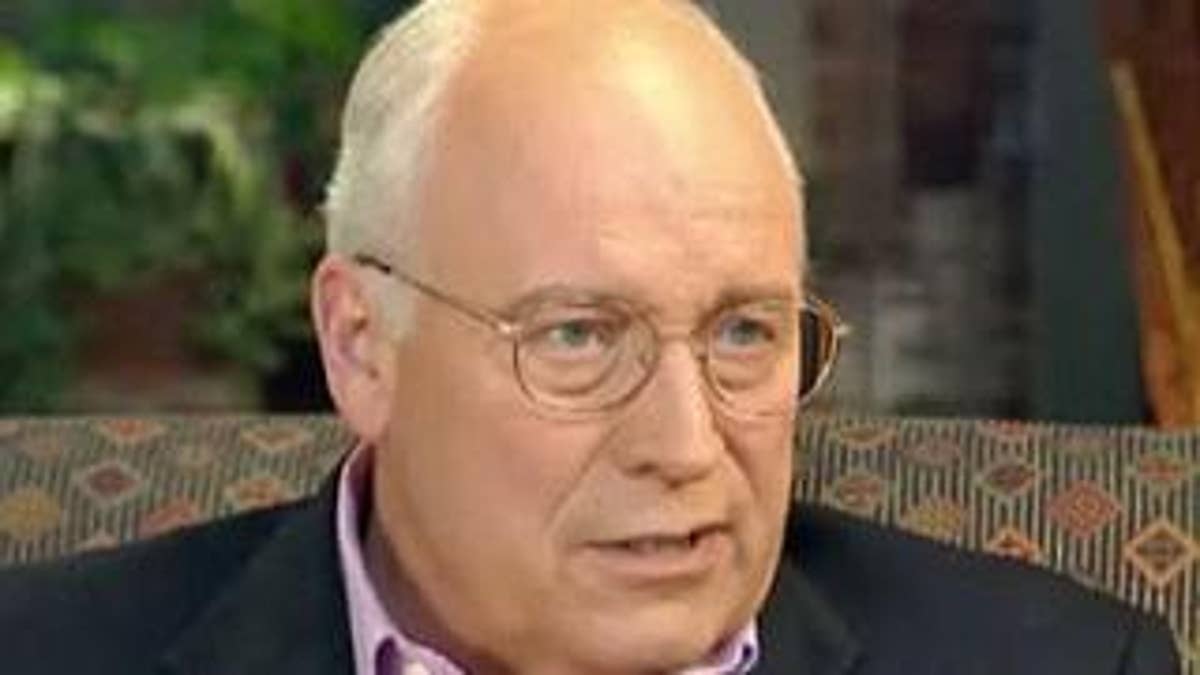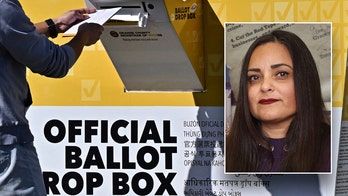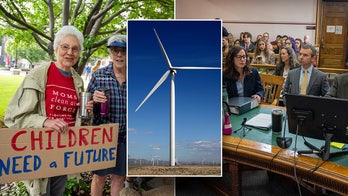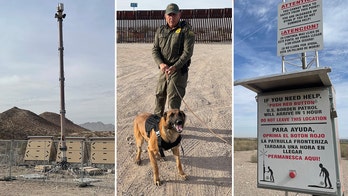
Calling it a "terrible decision" that undermines national security and devastates CIA morale, former Vice President Dick Cheney slammed the Obama administration's probe of aggressive interrogation of terrorists.
"It's an outrageous political act that will do great damage, long-term, to our capacity to be able to have people take on difficult jobs, make difficult decisions, without having to worry about what the next administration is going to say," Cheney told "FOX News Sunday" in a no-holds-barred interview.
In blunt, unsparing language, Cheney accused President Obama of setting a "terrible precedent" by allowing an "intensely partisan, politicized look back at the prior administration."
He said the decision by Attorney General Eric Holder to launch a probe into alleged abuse of prisoners under the prior administration "offends the hell out of me," as he seemed to question Obama's fitness as commander-in-chief.
"I have serious doubts about his policies," Cheney told FOX News' Chris Wallace in Jackson Hole, Wyo. "Serious doubts, especially, about the extent to which he understands and is prepared to do what needs to be done to defend the nation."
As evidence, Cheney pointed to Obama's decision last week to assert White House control over a newly formed unit that will interrogate terrorists. The new arrangement shifts control of such interrogations away from the CIA and toward the FBI, although oversight will be exercised by the National Security Council, which is located in the White House and reports directly to the president.
Administration officials are vague about which agency will retain ultimate authority. Obama spokesman Bill Burton initially said the new unit "will report to the director of the FBI," although the Justice Department, which encompasses the FBI, insisted the unit is "not a sub-unit of the FBI or the Justice Department."
Burton explained: "Just like other interagency processes, if there are disagreements, the different agencies are able to come together and make a decision."
Cheney ridiculed the new unit, which will be known as the High-Value Detainee Interrogation Group (HIG).
"It's not even clear who's responsible," he marveled. "The Justice Department is, then they claim they aren't. The FBI is responsible, and they claim they aren't. It's some kind of interagency process by which they're going to be responsible for interrogating high-value detainees.
"If we had tried to do that back in the aftermath of 9/11, when we captured Khalid Sheikh Mohammed, the mastermind of 9/11, we'd have gotten no place," he said.
Cheney predicted the new unit will be incapable of effectively interrogating "people that may have knowledge about imminent attacks."
"They're going to have to have meetings and decide who gets to ask what question and who's going to Mirandize the witness," he said. "I think it's silly. It makes no sense. It doesn't appear to be a serious move in terms of being able to deal with the nation's security."
Cheney warned that curtailing the CIA's role in interrogations is a grave mistake.
"I think it's a direct slap at the CIA. I don't think it will work," he said. "It moves very much in the direction of going back to the old way of looking at these terrorist attacks -- that these are law enforcement problems, that this isn't a strategic threat to the United States."
But Cheney reserved his strongest criticism for Holder's decision Monday to appoint a prosecutor and open a criminal investigation into alleged abuses by CIA agents who interrogated terrorists during the administration of former President George W. Bush. The former vice president accused Obama of breaking a promise not to prosecute the agents.
"We had the president of the United States, President Obama, tell us a few months ago there wouldn't be any investigation like this, that there would not be any look back at CIA personnel who were carrying out the policies of the prior administration," Cheney said. "Now they get a little heat from the left wing of the Democratic Party, and they're reversing course on that."
In January, just days before he took office, Obama assured CIA agents they need not worry about prosecution.
"We need to look forward, as opposed to looking backwards," the president-elect said. "At the CIA you've got extraordinarily talented people who are working very hard to keep Americans safe. I don't want them to suddenly feel like they've got to spend all their time looking over their shoulders and lawyering up."
In April, after disclosing classified documents that detailed the CIA's enhanced interrogation techniques, Obama said: "This is a time for reflection, not retribution."
"Nothing will be gained by spending our time and energy laying blame for the past," the president added. "For those who carried out some of these operations within the four corners of legal opinions or guidance that had been provided from the White House, I do not think it's appropriate for them to be prosecuted."
At the time, Holder added: "It would be unfair to prosecute dedicated men and women working to protect America for conduct that was sanctioned in advance by the Justice Department."
In his interview with FOX News, Cheney disputed the administration's assertion last week that the decision to go after the CIA agents was made by Holder, not Obama.
"If you look at the Constitution, the president of the United States is the chief law enforcement officer in the land," Cheney said. "The attorney general's a statutory officer. He's a member of the Cabinet. The president's the one who bears this responsibility."
Cheney said it was disingenuous of Obama "to say, 'Gee, I didn't have anything to do with it,' especially after he sat in the Oval Office and said this wouldn't happen. Then Holder decides he's going to do it. So now he's backed off and is claiming he's not responsible.
"I just think he's trying to duck the responsibility for what's going on here," Cheney concluded. "And I think it's wrong."
Cheney pointed out that the Justice Department already investigated all the cases in question during the Bush administration and decided to prosecute only one contractor, who received a jail sentence.
"The matter's been dealt with the way you would expect it to be dealt with by professionals," Cheney said. "Now we've got a political appointee coming back, and supposedly without the approval of the president, going to do a complete review, or another complete investigation, possible prosecution of CIA personnel."
He added: "A review is never going to be final anymore now. We can have somebody, some future administration, come along 10 years from now, 15 years from now, and go back and rehash all of these decisions by an earlier administration.
Cheney vigorously defended the CIA.
"In the intelligence arena, we ask those people to do some very difficult things, sometimes, that put their own lives at risk," he said. "They do so at the direction of the president. In this case, we had specific legal authority from the Justice Department. And if they are now going to be subject to being investigated and prosecuted by the next administration, nobody's going to sign up for those kinds of missions.
"It's a very, very devastating, I think, effect that it has on morale inside the intelligence community."




